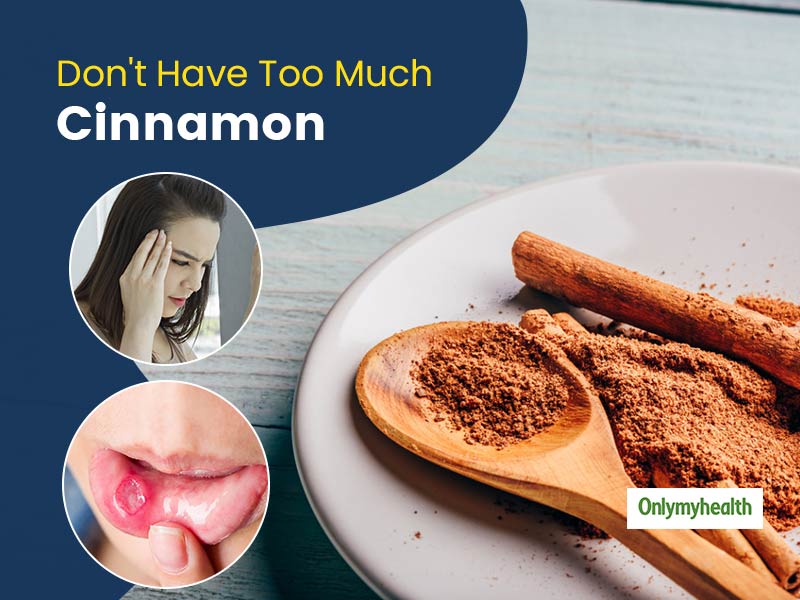
There are some spices and herbs that hold a special place in Ayurveda owing to their innumerable health benefits. Cinnamon or Dalchini is one of them. It not only is a flavourful ingredient but a superfood that caters to many issues including seasonal infections, weight loss, heart ailments, to name but a few. However, this doesn’t mean that you go overboard with it. Overconsumption of anything(even if it is super-healthy) is dangerous. Cinnamon can be bad too! Cinnamon may have exceptional nutrients but its excess intake may reverse the benefits. Let us know from an expert how overconsuming cinnamon may take a toll on your health.
How does cinnamon affect the body?
Swati Bathwal, Renowned Sports Dietitian and Diabetes educator explain: “Cinnamon are of 2 varieties- Sri Lankan Ceylon variety and Cassia bark which is predominantly found in China and India. It is Ceylon cinnamon which has no toxicity to the liver if consumed in a right amount which is 1-2 gm a day (a pinch), Indian Cassia variety is toxic to the liver when consumed in excess. On the contrary- although the Cassia variety is toxic is also helps in stabilising blood sugars when compared to the non-toxic variety. The bottom line is to use Ceylon variety in the right amount. The difference between the 2 is the taste and colour- Indian Cassia variety is stronger in taste and is dark brown in colour whereas Ceylon variety is a tan brown in colour and is lighter and a bit citrus in taste.”
In this article, instead of talking about cinnamon health benefits, let us take you through its cons.
#1 Respiratory Illnesses

If you have ever tried to smell cinnamon powder, you’d immediately sneeze. This is a strong spice that instantly gets into your body through the nose. Sneezing, coughing and breathing discomfort get triggered as you inhale grounded cinnamon. While normal people can get relief after a while, those who have asthma or other respiratory problems must not attempt this. It can trigger asthma attacks in them.
Also Read: Can Sneezing Lead To Slip Disc? Find Out In This Article
#2 Cinnamon can cause allergies
Just like how cinnamon can trigger asthma attacks, it can also give rise to numerous other allergies. Skin irritation after consuming cinnamon is seen in some people. This is probably because they are allergic to this spice. Thus it would be better to not have it.
#3 Overconsumption of cinnamon can cause dizziness
Spiced cinnamon tea or cinnamon cake tastes divine! There may be instances where you may want to have more of it but you mustn’t do it. The reason being cinnamon overdose can drop blood sugar levels. Those whose body cannot handle much of this spice may experience fatigue, dizziness, anxiety, etc. This is applicable in the use of cinnamon oil as well.

#4 Digestive discomfort
Have you ever felt bloated or constipated after consuming cinnamon? This is because cinnamon is a strong compound that can alter the mechanism and cause digestive issues. In the long run, it may even lead to ulcers and pancreatic cancer!
Also Read: 5 Lesser-Known Fermented Foods That Can Take Your Digestive Health A Level Up
#5 Mouth sores after eating too much cinnamon

The acting component in cinnamon is cinnamaldehyde that is likely to cause mouth ulcers. Besides, tingling or irritation in the tongue is also common.
These were some of the limitations of consuming cinnamon that we need to be careful about. You need to see if your body reacts in a certain manner after eating cinnamon to find out if you are allergic to it. Also, never overconsume this spice as it can thereafter cause side-effects.
Read More Articles in Healthy Diet







